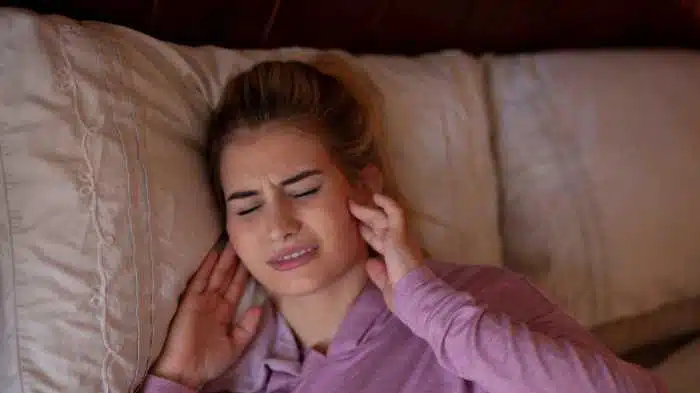
Are you constantly waking up with a headache or a sore jaw because you grind your teeth? In this case, you may be suffering from sleep bruxism, one of the most common sleep disorders. This condition is caused by involuntary teeth clenching and tooth grinding during sleep. Many people don’t realize they grind their teeth because they do it at night. While sleep bruxism can be harmless it can also lead to severe oral and sleep health issues.
What causes bruxism?
Bruxism is common in people experiencing nervous tension like frustration, anger, or pain. It also affects people with aggressive or overly-competitive tendencies. If you are prone to extreme stress, you may also be more prone to developing bruxism. There is some proof that an imbalance causes bruxism in brain neurotransmitters in some people.
How do you know if you have sleep bruxism?
Your healthcare provider will examine your teeth for signs of sleep bruxism during your dental visits. The symptoms of sleep bruxism include:
- Facial pain
- Tooth pain
- Loosened teeth
- Misaligned teeth
- Abnormal bite
- Sleep apnea or sleep disorder
- Tooth sensitivity
- Abraded or worn down teeth
- Worn tooth enamel
- Chipped teeth
- Broken teeth
- Tense or facial and jaw muscles
- Jaw clenching or locking
- Jaw pain
- Headaches
What are the risk factors of grinding your teeth, and how can it damage your smile?
- Tooth decay: The excessive force applied to the teeth can cause them to wear down and even crack or chip. Tooth decay then makes the teeth more susceptible to plaque and bacteria buildup.
- Gum disease: Grinding can also cause the gums to become inflamed and pull away from the teeth. When the gums become inflamed, it is easier for bacteria to build up and lead to gum disease, which can be harmful to your oral health.
- Tooth loss: Chronic teeth grinding can wear down your teeth significantly. If you experience severe bruxism, you may need dental implants, crowns, or bridges to repair the tooth.
- Temporomandibular Joint disorders (TMJ Syndrome): Teeth grinding can lead to TMJ disorder. If you have TMJ disorder, you will hear a clicking sound when you open your mouth or chew. Temporomandibular joints disorder is a condition that affects the jaw joints and surrounding chewing muscles and ligaments.
- Migraines: When someone with bruxism clinches or grinds their teeth, the strain generated travels out and up into the head and neck which produces headaches.
How can you reduce teeth grinding and protect your smile for good?
Generally, bruxism can be successfully treated and you can eliminate teeth grinding. Here are some tips on how to stop sleep bruxism and prevent teeth grinding:
- Mouth Guards (Mandibular Advancement Device): Your healthcare provider can fit you with a plastic mouth guard that you will place on your upper or lower teeth. Night guards for teeth clenching can help change behavior habits to stop teeth grinding. When you wear the night guard, it will absorb the force of biting. You can wear the mouth guard during the day if you grind your teeth while awake.
- Biofeedback: Biofeedback is an electronic instrument that measures the muscle activity of the mouth and jaw. The purpose is to signal patients when there is too much muscle activity. This is helpful for daytime bruxism because it warns the patient to change that behavior.
- Medicine: In some cases, your doctor may suggest taking a muscle relaxant or sleep medicine before bedtime for a short period in order to stop teeth grinding. Additionally, your doctor may recommend the short-term use of antidepressants or anti-anxiety medications to help you cope with the stress that contributes to your bruxism. In severe cases of chronic bruxism, doctors may recommend botox injections to help treat bruxism.
- Stress or anxiety management: In cases where bruxism is linked to stress, working on stress reduction techniques may be the best way to stop grinding your teeth while you sleep. Learning techniques to reduce stress, such as meditation, talk therapy, warm bath, jaw muscle exercises, or getting undisrupted sleep are all methods for treating stress as well as treating bruxism.
- Food and Alcohol: Teeth grinding tends to escalate after alcohol consumption. Avoid or cut back on foods and drinks that contain caffeine, such as colas, chocolate, and coffee. Avoid alcohol, chewy food, and chewing on anything that is not food because it adds tension to your jaw muscles.
Jaw and Face Exercises
The American Dental Association recommends jaw and face exercises to help reduce the effects of sleep bruxism, temporomandibular joint (TMJ disorders), and chronic pain. Incorporating tongue and jaw muscle exercises into your nightly routine can help you maintain proper jaw alignment and relax your jaw and facial muscles. Before starting an exercise routine, consult a physical therapist.
“N”
Widely open your mouth while touching your tongue to your front teeth to relax the jaw. Say the letter “N” out loud; this will keep your bottom and top teeth from touching and help you avoid clenching your teeth.
Chin Tucks
- Lower your head, bringing your chin close to your chest.
- While keeping your top and bottom teeth apart, push your chin back so your head returns to its normal position.
- Repeat this motion 15 times, three times a day.
Goldfish Exercise
- Place your tongue on the roof of your mouth and one finger in front of your ear where your TMJ is located.
- Put your middle on your chin and drop your lower jaw halfway and then close.
- Switch between variations of opening your mouth full or halfway. You should feel some resistance, but not pain. A variation of this exercise is to place one finger on each TMJ as you drop your lower jaw halfway and close again.
Relaxed Jaw
Rest your tongue on the top of your mouth and allow your teeth to come apart while relaxing your jaw muscles.
Resistance Opening
- Place your thumb under your chin.
- Open your mouth slowly, pushing against your chin. Hold for four to six seconds, and then close your mouth slowly.
Resistance Closing
- Squeeze your chin with your index and thumb with one hand.
- Close your mouth as you gently place pressure on your chin.
Side to Side
- Put a ¼ inch object, such as stacked tongue depressors, between your teeth, and slowly move your jaw from side to side.
- As the exercise becomes more accessible, increase the object’s thickness between your teeth by stacking them one on top of each other.
Foward Jaw
- Put a ¼ inch object between your teeth. Move your bottom jaw forward, so your bottom teeth are in front of your top teeth.
- As the exercise becomes more accessible, increase the object’s thickness between your teeth.
Dental health professionals can examine your mouth and jaw for signs of teeth grinding and help reduce jaw tenderness or excessive wear on your teeth. If you are experiencing sleep bruxism that is leading to tooth damage, please consult with a medical professional to get the best treatment. There are many solutions available, and your dentist can help you find the one that is right for you. Don’t suffer in silence – there is help available to help reduce pain!


